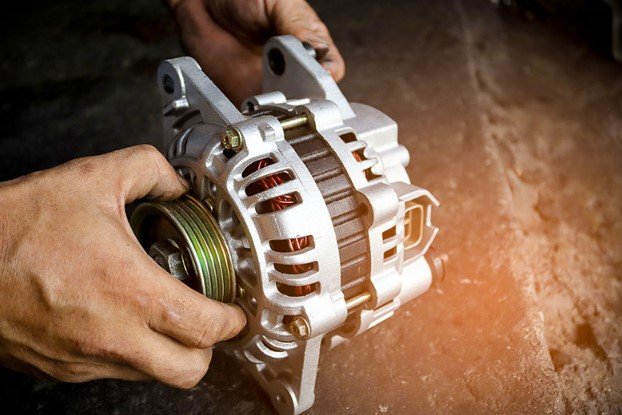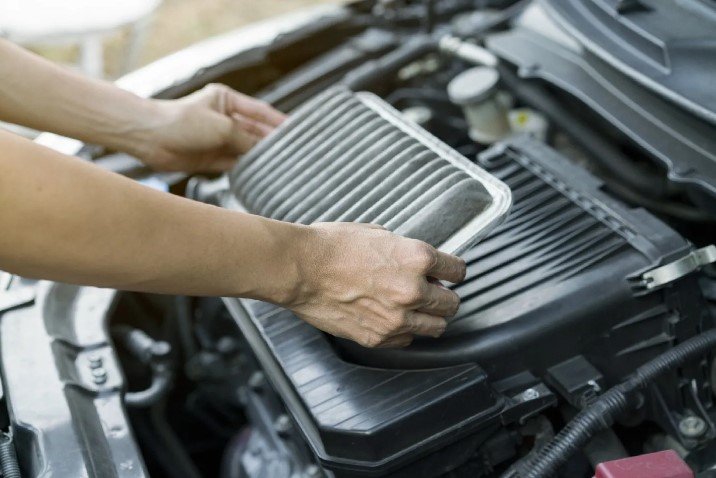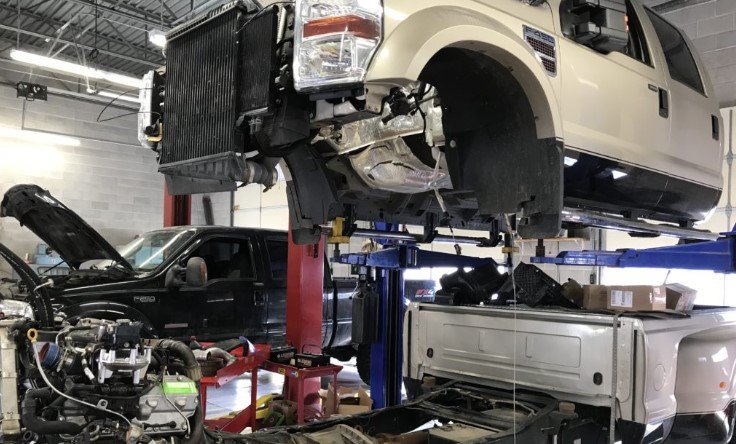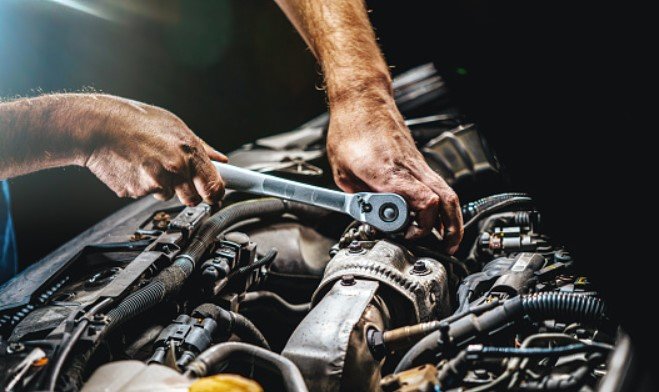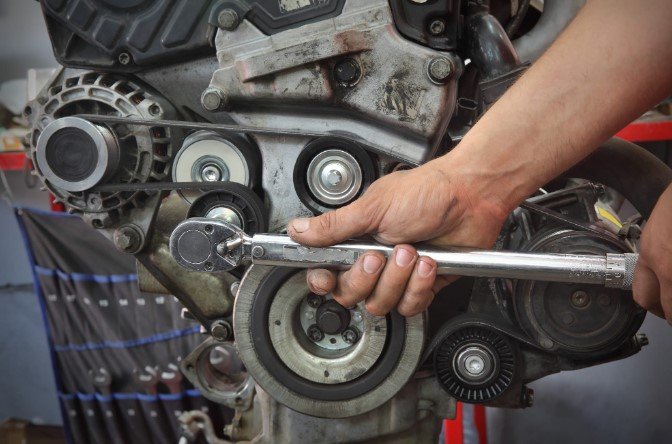
Diesel Engine Repair: A Comprehensive Guide

Diesel engines have long been the workhorses of various industries, powering everything from trucks and buses to generators and heavy machinery. Their robustness and efficiency make them indispensable, but like any mechanical system, they require regular maintenance and occasional repairs to keep them running smoothly. In this guide, we’ll delve into the intricacies of diesel engine repair, from understanding common issues to performing maintenance tasks.
I. Introduction
Importance of Diesel Engines
Diesel engines are renowned for their durability and fuel efficiency, making them ideal for applications where reliability is paramount. From powering commercial vehicles to providing backup electricity, diesel engines play a crucial role in various sectors.
Common Issues with Diesel Engines
Despite their resilience, diesel engines are prone to wear and tear over time. Factors such as improper maintenance, harsh operating conditions, and age can contribute to various problems, necessitating timely repair and attention.
II. Understanding Diesel Engine Repair
Basic Components of a Diesel Engine
Before delving into repair procedures, it’s essential to understand the fundamental components of a diesel engine. These include the cylinder block, piston assembly, fuel injection system, cooling system, and electrical system, among others.
Signs that Indicate the Need for Repair
Recognizing early warning signs of potential issues can prevent costly breakdowns and extensive damage. Common symptoms of diesel engine problems include excessive smoke emissions, loss of power, unusual noises, and fluid leaks.
III. Common Diesel Engine Problems
Fuel System Issues
The fuel system is critical for delivering the correct amount of fuel to the engine cylinders. Common fuel system problems include clogged filters, injector issues, and fuel pump malfunctions, which can lead to poor performance and reduced fuel efficiency.
Cooling System Problems
Efficient cooling is essential for preventing overheating and maintaining optimal engine temperature. Cooling system issues such as leaks, thermostat failures, and radiator blockages can result in engine overheating and potential damage to internal components.
Electrical System Malfunctions
The electrical system provides power to essential components such as the starter motor, alternator, and glow plugs. Faulty electrical connections, damaged wiring, and malfunctioning sensors can disrupt engine operation and lead to starting problems or stalling.
IV. Steps to Perform Diesel Engine Repair
Diagnostic Process
Diagnosing diesel engine problems requires a systematic approach, including visual inspection, computerized diagnostics, and component testing. Identifying the root cause of the issue is crucial for implementing effective repairs.
Repairing Fuel System Components
Repairing the fuel system may involve cleaning or replacing fuel filters, servicing injectors, and testing the fuel pump for proper pressure and flow. Addressing fuel system issues promptly can restore engine performance and fuel economy.
Fixing Cooling System Issues
Repairing the cooling system typically involves locating and repairing leaks, replacing damaged hoses or fittings, flushing the radiator and cooling passages, and ensuring proper coolant levels and mixture ratios. Proper cooling system maintenance is vital for preventing engine overheating.
Addressing Electrical System Problems
Repairing electrical system faults may require repairing or replacing damaged wiring, connectors, or sensors, testing and servicing the battery and charging system, and diagnosing and rectifying starting or charging issues. Ensuring a reliable electrical supply is essential for engine operation.
V. DIY vs. Professional Repair
Pros and Cons of DIY Repair
DIY diesel engine repair can be cost-effective and empowering for mechanically inclined individuals. However, it also carries the risk of incomplete repairs, misdiagnosis, and potential safety hazards if not performed correctly.
Benefits of Professional Repair Services
Professional diesel engine repair services offer expertise, specialized equipment, and access to genuine parts, ensuring thorough diagnostics and quality repairs. Professional technicians can diagnose and address complex issues efficiently, minimizing downtime and ensuring reliable engine performance.
VI. Diesel Engine Maintenance Tips
Regular Inspection
Performing regular visual inspections and scheduled maintenance checks can help identify potential issues before they escalate into major problems. Inspecting fluid levels, belts, hoses, and connections ensures the engine operates smoothly and reliably.
Proper Fuel and Oil Management
Using high-quality fuel and lubricants recommended by the manufacturer helps maintain engine efficiency and longevity. Regularly changing the oil, fuel, and air filters prevents contamination and ensures optimal engine performance.
Following Manufacturer Guidelines
Adhering to the manufacturer’s recommended maintenance schedule and operating guidelines is essential for maximizing the lifespan and performance of the diesel engine. Following proper maintenance procedures and using genuine replacement parts can prevent premature wear and costly repairs.
VII. Conclusion
Timely repair and maintenance are essential for ensuring the reliable performance and longevity of diesel engines. By understanding common issues, performing regular inspections, and addressing problems promptly, owners can minimize downtime, reduce repair costs, and prolong the lifespan of their diesel-powered equipment.
FAQs (Frequently Asked Questions)
- How often should I perform maintenance on my diesel engine?
- Maintenance intervals vary depending on factors such as engine type, operating conditions, and manufacturer recommendations. Consult your owner’s manual for specific guidelines.
- Can I use regular automotive oil in my diesel engine?
- It’s recommended to use oil specifically formulated for diesel engines, as they operate under higher temperatures and pressures compared to gasoline engines.
- What are the common causes of diesel engine overheating?
- Common causes include coolant leaks, malfunctioning thermostats, clogged radiators, and faulty water pumps.
- Is it safe to attempt DIY repairs on my diesel engine?
- While some minor repairs and maintenance tasks can be performed by experienced individuals, complex issues should be addressed by professional technicians to ensure safety and proper repairs.
-
How can I improve fuel efficiency in my diesel engine?
- Maintaining proper tire pressure, minimizing idling time, avoiding aggressive driving, and keeping the engine well-maintained can help improve fuel efficiency.

